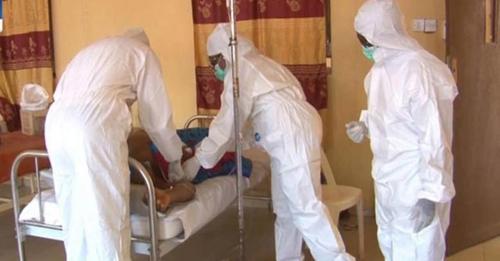Headlines
Panic ensues as lassa fever wreaks havoc in 16 states

The outbreak of Lassa fever has triggered widespread panic across Nigeria, with reports indicating its devastating impact in at least 16 states.
This alarming development has raised concerns among health authorities and citizens alike, as efforts intensify to contain the spread of the deadly virus.
Lassa fever, a viral hemorrhagic illness caused by the Lassa virus, is transmitted to humans through contact with infected rodents or consumption of contaminated food.
The disease typically manifests with symptoms such as fever, headache, muscle aches, and bleeding, and can lead to severe complications, including organ failure and death.
The recent surge in Lassa fever cases has left communities on edge, as fears mount over the potential for further spread and escalation of the outbreak.
Read Also: NCDC reports 20 deaths from Lassa Fever in 16 states
Health authorities have issued advisories urging citizens to take precautionary measures, such as practicing good hygiene, avoiding contact with rodents, and seeking prompt medical attention if symptoms develop.
Efforts to combat the outbreak have been hampered by various challenges, including limited healthcare infrastructure, inadequate resources, and logistical constraints.
The rapid spread of the virus across multiple states has stretched health facilities to their limits, with frontline healthcare workers facing immense pressure to respond effectively to the crisis.
In response to the escalating situation, government agencies, non-governmental organizations, and international partners have mobilized resources and deployed teams to affected areas to support outbreak response activities.
These efforts include surveillance and monitoring, case management, contact tracing, and community sensitization to raise awareness about preventive measures.
Despite these interventions, the persistence of Lassa fever underscores the need for sustained investment in public health infrastructure and capacity-building initiatives to strengthen disease surveillance, early detection, and response capabilities.
Additionally, there is a growing recognition of the importance of community engagement and participation in disease prevention and control efforts.
The outbreak serves as a stark reminder of the ongoing threats posed by infectious diseases and the importance of preparedness and response measures to mitigate their impact.
As Nigeria grapples with the challenge of containing the spread of Lassa fever, there is a collective call for greater collaboration and coordination among stakeholders to address the root causes of the outbreak and prevent future occurrences.
In the face of the current crisis, vigilance, resilience, and solidarity are essential to overcoming the challenges posed by Lassa fever and safeguarding the health and well-being of all Nigerians.
With concerted efforts and collective action, it is hoped that the outbreak can be brought under control, and affected communities can begin the process of recovery and rebuilding.
